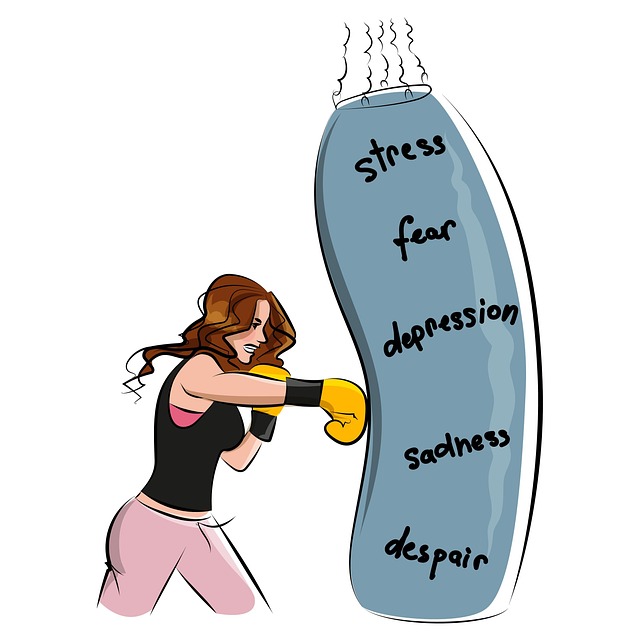Mental health professionals in Arvada face unique challenges like trauma exposure, burnout, and stress. Arvada Independent Medical Evaluations (IMEs) play a vital role by offering unbiased, tailored assessments of therapists' clinical skills, patient interactions, and ethical practices. These evaluations help identify areas for improvement, leading to better stress management, enhanced social skills training, and improved work-life balance. By incorporating IMEs and other best practices like risk assessments, mental wellness coaching, and burnout prevention, Arvada's therapy settings create safe, supportive environments for both patients and providers.
Mental health professionals are on the front line of critical care, facing unique challenges that can lead to significant risks. This article delves into comprehensive risk assessment strategies essential for protecting both practitioners and their clients. We explore key components like understanding mental health professional risk assessment, the role of independent medical evaluations in Arvada, identifying and mitigating risks in therapy settings, and best practices for enhancing safety in mental health care. By adopting these strategies, therapists can ensure a secure environment facilitating effective treatment.
- Understanding Mental Health Professional Risk Assessment
- The Role of Independent Medical Evaluations in Arvada
- Identifying and Mitigating Risks in Therapy Settings
- Best Practices for Enhancing Safety in Mental Health Care
Understanding Mental Health Professional Risk Assessment

Mental health professionals, like any other healthcare providers, face unique challenges and risks in their practice. Understanding these risks is a crucial step for ensuring their well-being and maintaining high-quality patient care. A comprehensive risk assessment involves identifying potential hazards within the therapeutic environment, such as exposure to traumatic stories or challenging client behaviors. It also encompasses personal factors like burnout, stress, and the impact of work on mental health.
In Arvada, independent medical evaluations play a vital role in this process, offering unbiased assessments tailored to individual professionals. These evaluations can pinpoint areas needing improvement, whether it’s implementing effective stress management workshops or enhancing social skills training within their practice. By proactively addressing these risks, mental health professionals can foster a healthier work-life balance and better serve their clients.
The Role of Independent Medical Evaluations in Arvada

In Arvada, Independent Medical Evaluations (IMEs) play a pivotal role in ensuring the highest standards of care within the mental health profession. These evaluations provide an objective assessment of a therapist’s practice, including their clinical skills, patient interactions, and adherence to ethical guidelines. By conducting IMEs, professionals can identify areas for improvement, implement effective conflict resolution techniques, and enhance overall therapy quality. This proactive approach not only benefits patients but also fosters a culture of continuous learning among mental health practitioners in the Arvada community.
Moreover, IMEs offer therapists valuable insights into their therapeutic practices, enabling them to boost client confidence and strengthen relationships through enhanced empathy building strategies. These evaluations serve as a mirror, reflecting the effectiveness of treatment methods and guiding professionals toward innovative approaches that cater to the unique needs of each client. In turn, improved therapy outcomes contribute to the overall well-being of the Arvada community.
Identifying and Mitigating Risks in Therapy Settings

Identifying risks within therapy settings is a proactive step towards fostering a safe and supportive environment for both clients and mental health professionals. These risks can manifest in various forms, from potential ethical dilemmas to practical challenges. One effective strategy is to incorporate comprehensive risk assessments as part of the initial client intake process. This involves gathering detailed information about the client’s history, current circumstances, and any previous experiences that might contribute to heightened vulnerability during therapy. By conducting Arvada Independent Medical Evaluations, therapists can uncover hidden risks and tailor their approach accordingly.
Additionally, integrating Mental Wellness Coaching Programs and Development into therapeutic practices offers a proactive risk mitigation strategy. These programs emphasize emotional intelligence—a crucial aspect of mental health education. Equipping professionals with the skills to recognize and manage their own emotions, as well as those of their clients, can prevent burnout and enhance the overall quality of care. Well-designed Mental Health Education Programs can empower therapists to create a culture of openness, where both parties feel safe to explore sensitive topics, thereby reducing potential risks associated with therapy sessions.
Best Practices for Enhancing Safety in Mental Health Care

Mental health professionals play a critical role in ensuring patient well-being, making it imperative to implement robust safety measures within their practices. Best practices for enhancing safety in mental health care encompass several key strategies. One of the primary methods is incorporating independent medical evaluations (IMEs) tailored to individual patient needs, particularly when managing complex cases or high-risk populations. These evaluative processes, often facilitated by experts external to the treating therapist, provide an objective perspective, aiding in accurate diagnosis and treatment planning.
Additionally, prioritizing burnout prevention through effective burnout prevention strategies for healthcare providers is essential. Therapists should adopt comprehensive stress reduction methods, such as self-care practices, supervision, and professional development opportunities. By fostering a culture of resilience and well-being within the mental health care setting, professionals can enhance patient outcomes while safeguarding their own mental health. Integrating these best practices, including Arvada independent medical evaluations for therapy, is vital to creating a safe and supportive environment for both patients and providers.
Mental health professionals face unique challenges that require comprehensive risk assessment and management. By understanding these risks, implementing best practices, and utilizing tools like independent medical evaluations in Arvada, therapists can create safer, more supportive therapy settings. Integrating these strategies is essential for enhancing patient care and ensuring the well-being of both clients and practitioners within the mental health field, particularly in Arvada’s diverse therapeutic landscape.









